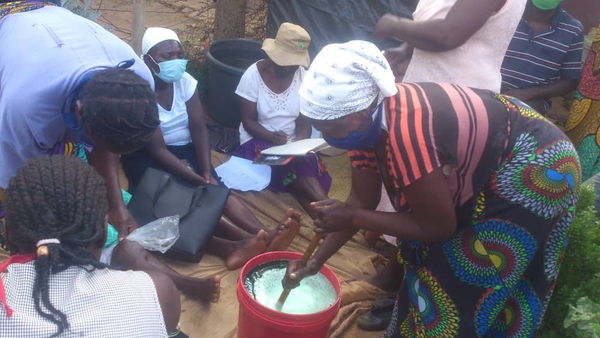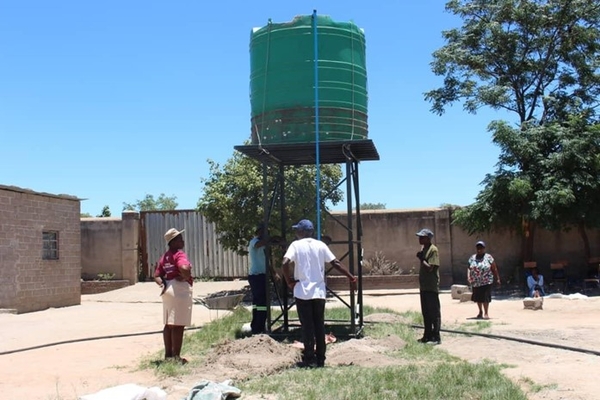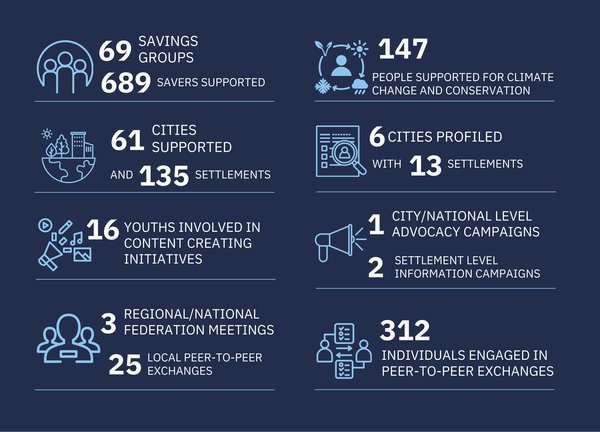- Who We Are
- How We Work
- Regional / Country Initiatives
- Legacy
- Core Themes
- Working Groups
- Portfolio & Results
- Newsroom
- Resources
Zimbabwe: Building Community Resilience in Informal Settlements

Project Overview
Zimbabwe faces deepening economic and social crises, exacerbated by the Covid-19 pandemic and climate-related disasters. Soaring inflation, high unemployment, and food insecurity have left vulnerable communities struggling to survive. The project offers micro-business grants and starter kits for recovery and food security, fosters social cohesion, provides capacity-building programs for marginalized groups, enhances infrastructure, and gathers data for informed decision-making.
Supported by the Dialogue on Shelter for the Homeless Trust, it empowers marginalized communities in 57 informal settlements across 36 cities, primarily through the Zimbabwe Homeless People’s Federation and Zimbabwe Young People’s Federation.
This project is part of the Building Resilience in Informal Settlements Programme, a partnership between Cities Alliance and Slum Dwellers International (SDI), funded by the Swedish International Development Cooperation Agency (Sida), to support civil society organizations working in informal settlements.

Initial Project Results: 2022-2024
The project has made remarkable strides, empowering communities across 61 cities through the establishment of 69 savings groups. Within these groups, 413 members have undergone comprehensive training in income generation and livelihood skills, including invaluable lessons in entrepreneurship and horticulture. From crafting detailed business plans to mastering land preparation techniques, pest control strategies, understanding nutritional values, and effective marketing tactics, these individuals are equipped with the tools they need to thrive.
24 groups are well trained in savings manual usage and received livelihood starter kits, including detergent making kits, small animal husbandry kits, and sewing kits.
Dialogue on Shelter for the Homeless and the Zimbabwe Homeless People's Federation (ZHPF) mobilized groups for capacity building, and training on understanding federation operations, and monitoring and evaluation. Additionally, young people underwent content creation training.
Training sessions on climate change impact were held, reaching 42 Federation members. An informal design studio was established, resulting in crucial designs and maps for future informal market developments. Additionally, ten water point committee members were trained in solarized borehole system operation, and a solar borehole capacitation project was completed in Bulawayo.
Four monitoring visits were conducted, recording success stories such as local authority water connections facilitated by federation savings initiatives.

Key Achievements: 2022-2024

